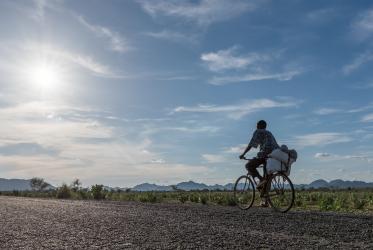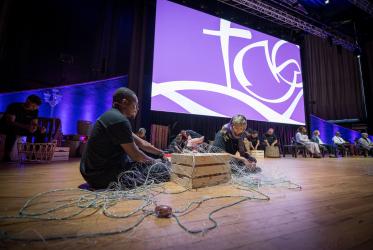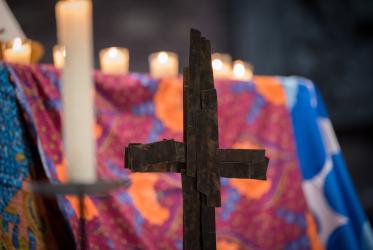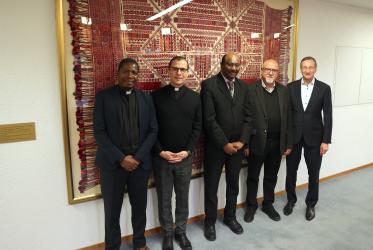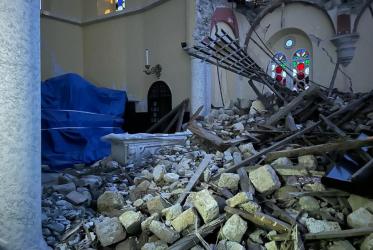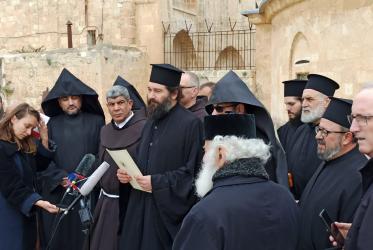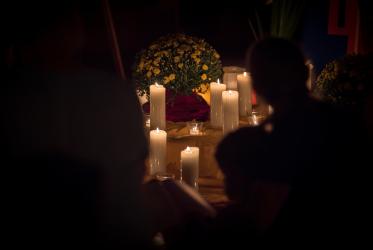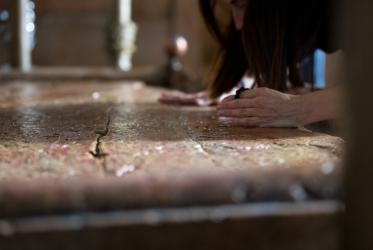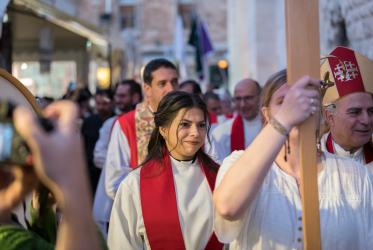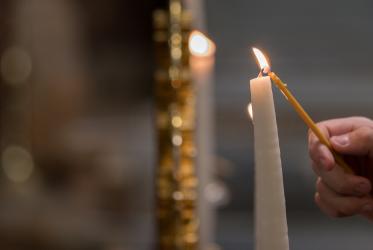Displaying 1181 - 1200 of 14909
14 April 2023
“All groups should be allowed to come and worship”
14 April 2023
WCC offers input to the UN New Agenda for Peace
13 April 2023
“How is it that my family could be separated on Easter?”
12 April 2023
"I could hardly believe I was in Jerusalem"
11 April 2023
Hope for Palestine
11 April 2023
Eastertide brings Inextinguishable light
11 April 2023
